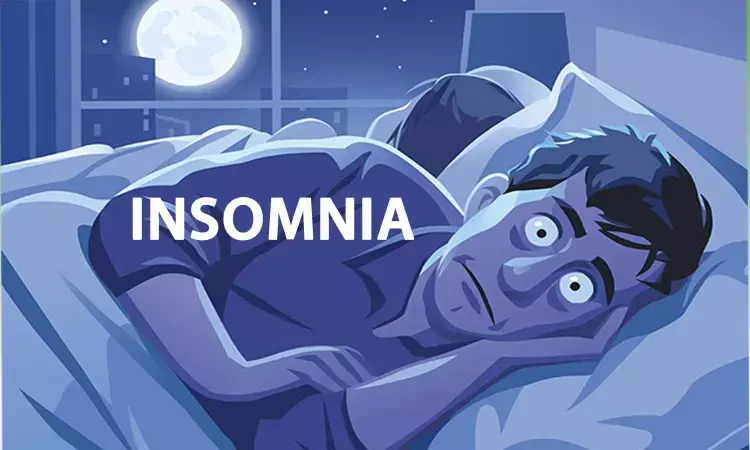- Home
- Medical news & Guidelines
- Anesthesiology
- Cardiology and CTVS
- Critical Care
- Dentistry
- Dermatology
- Diabetes and Endocrinology
- ENT
- Gastroenterology
- Medicine
- Nephrology
- Neurology
- Obstretics-Gynaecology
- Oncology
- Ophthalmology
- Orthopaedics
- Pediatrics-Neonatology
- Psychiatry
- Pulmonology
- Radiology
- Surgery
- Urology
- Laboratory Medicine
- Diet
- Nursing
- Paramedical
- Physiotherapy
- Health news
- Fact Check
- Bone Health Fact Check
- Brain Health Fact Check
- Cancer Related Fact Check
- Child Care Fact Check
- Dental and oral health fact check
- Diabetes and metabolic health fact check
- Diet and Nutrition Fact Check
- Eye and ENT Care Fact Check
- Fitness fact check
- Gut health fact check
- Heart health fact check
- Kidney health fact check
- Medical education fact check
- Men's health fact check
- Respiratory fact check
- Skin and hair care fact check
- Vaccine and Immunization fact check
- Women's health fact check
- AYUSH
- State News
- Andaman and Nicobar Islands
- Andhra Pradesh
- Arunachal Pradesh
- Assam
- Bihar
- Chandigarh
- Chattisgarh
- Dadra and Nagar Haveli
- Daman and Diu
- Delhi
- Goa
- Gujarat
- Haryana
- Himachal Pradesh
- Jammu & Kashmir
- Jharkhand
- Karnataka
- Kerala
- Ladakh
- Lakshadweep
- Madhya Pradesh
- Maharashtra
- Manipur
- Meghalaya
- Mizoram
- Nagaland
- Odisha
- Puducherry
- Punjab
- Rajasthan
- Sikkim
- Tamil Nadu
- Telangana
- Tripura
- Uttar Pradesh
- Uttrakhand
- West Bengal
- Medical Education
- Industry
Nightmares tied to anxiety and insomnia in heart patients

Sophia Antipolis, - Heart patients with weekly nightmares are five times more likely to feel depressed or anxious and even more likely to have difficulty sleeping compared to those without frequent nightmares. That's the finding of a study published today in the European Journal of Cardiovascular Nursing, a journal of the European Society of Cardiology (ESC).1
"Health professionals should ask patients if they experience bad dreams as a warning sign for depression, anxiety, or trouble sleeping," said Dr. Kohno. "Psychological disorders and insomnia are linked with the development and progression of heart disease and upsetting dreams could be a clue that patients need extra prevention efforts."
"Our study shows strong associations between depression, anxiety, insomnia, and bad dreams in patients with heart disease," added study author Dr. Takashi Kohno of Keio University School of Medicine, Tokyo, Japan. "As this was an observational study, it cannot determine the cause-effect relationship, but it may be bidirectional. In other words, depression, anxiety and insomnia may cause nightmares, and nightmares could lead to depression, anxiety and insomnia."
Previous research has shown that frequent nightmares are associated with sleep and psychological disorders in the general population. This was the first study to investigate this relationship in patients with heart diseases. It also examined whether heart medications were connected with unpleasant dreams.
The study included 1,233 patients admitted with various heart diseases to Keio University Hospital. The average age was 64 years and 25% were women. Nightmares, sleep and psychological characteristics were assessed with self-reported questionnaires and sleep-disordered breathing (when breathing stops and starts during sleep) was measured using overnight pulse oximetry (a measure of blood oxygen levels).
Nearly 15% of patients had at least one nightmare per month, and 3.6% had at least one nightmare per week (defined as frequent nightmares). Women were more likely to have frequent unpleasant dreams compared to men. Some 45.9% of patients reported insomnia, 18.5% had depression, 16.9% had anxiety, and 28.0% had sleep-disordered breathing.
Frequent nightmares were not associated with heart medications and sleep-disordered breathing, but were linked with depression, anxiety, and insomnia. Patients with weekly bad dreams were five times more likely to be depressed (odds ratio [OR]=4.61; 95% confidence interval [CI]=2.03-10.48), five times more likely to be anxious (OR=5.32; 95% CI=2.36-12.01), and seven times more likely to have insomnia (OR=7.15; 95% CI=2.41-21.22).
Dr. Kohno said: "The prevalence of nightmares and frequent nightmares in the general population, reported by other groups, is similar to the experience of heart patients in our study. We showed that in people with heart disease, women are more likely than men to have persistent bad dreams - this also mirrors findings in the general public. The strong associations among frequent nightmares, insomnia, and psychological disorders we observed reflects prior research in healthy people, suggesting that these relationships could be universal regardless of the presence of heart diseases."
He concluded: "Nightmares may be an alert for underlying psychological or sleep problems that should be addressed to avoid new, or worsening, heart problems. Healthcare professionals should include a question about bad dreams in their assessments.
Hina Zahid Joined Medical Dialogue in 2017 with a passion to work as a Reporter. She coordinates with various national and international journals and association and covers all the stories related to Medical guidelines, Medical Journals, rare medical surgeries as well as all the updates in the medical field. Email: editorial@medicaldialogues.in. Contact no. 011-43720751
Dr Kamal Kant Kohli-MBBS, DTCD- a chest specialist with more than 30 years of practice and a flair for writing clinical articles, Dr Kamal Kant Kohli joined Medical Dialogues as a Chief Editor of Medical News. Besides writing articles, as an editor, he proofreads and verifies all the medical content published on Medical Dialogues including those coming from journals, studies,medical conferences,guidelines etc. Email: drkohli@medicaldialogues.in. Contact no. 011-43720751


